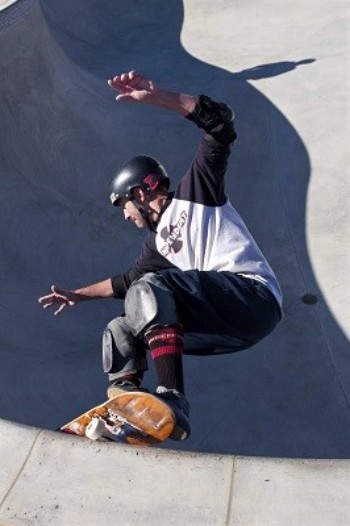Skateboarding Injury Can be Prevented
After a lot of begging and against your better judgment, you purchased your teen a new skateboard and he can't wait to get out and use it. Now you're worried he's going to get hurt.
Contrary to some parents' opinion, skateboarding can be a safe and enjoyable activity. But without proper precautions, it also can lead to everything from minor abrasions to traumatic brain injury.
They're All Going to Fall
In 2015, 125,145 people were treated in hospital emergency rooms after being injured skateboarding. More than half of those injured were ages 14 to 24, and about one-third were between the ages of 5 and 14.
While the number of injuries caused by skateboarding is somewhat high – basketball, bicycling and football rank in the top three, skateboarding comes in eighth – making sure your child has the proper safety gear can make all the difference.
Newcomers to the sport account for one-third of the injuries. But, even experienced skateboarders fall – a lot. They most frequently are injured in falls caused by rocks and irregular surfaces. Wrists usually get the brunt of the damage with sprains or fractures, but "swellbows," or swollen elbows, also are not uncommon.
Here are some suggestions to help keep skaters safe:
- Use the proper skateboard for the type of riding: freestyle, slalom or speed.
- Wear closed, slip-resistant shoes, helmet and pads to reduce the number and severity of cuts and scrapes. Padded jackets and shorts; hip, knee and elbow pads; wrist braces; and special skateboarding gloves all help to absorb the impact of a fall. (Equipment is not subject to government performance standards, so choose carefully.)
- Give your board a safety check before each ride.
- Never ride in the street, and obey local laws on where you can and cannot skate.
- Don't skate in crowds of non-skaters. It's dangerous and annoying to those around you.
- Only one person per board, and never hitch a ride from a car or bike.
- Practice complicated tricks in specially designated areas.
Did you know that falling is an art? If done properly falling doesn't have to result in serious injury.
- If you feel like you're about to lose control, crouch down so you don't have as far to fall.
- Try to land on the fleshy parts of your body.
- Try to roll rather than absorbing the force with your arms.
- Try to relax your body rather than going stiff.
- Practice falling on a soft surface or grass.
Keep in Mind
Children younger than 5 should not skateboard at all, according to the American Academy of Pediatrics, and children younger than 10 should not skateboard without adult supervision.

